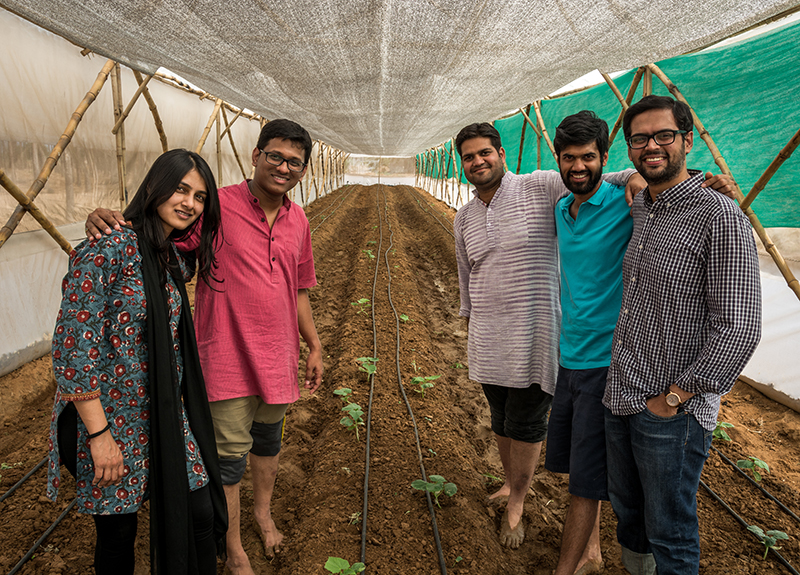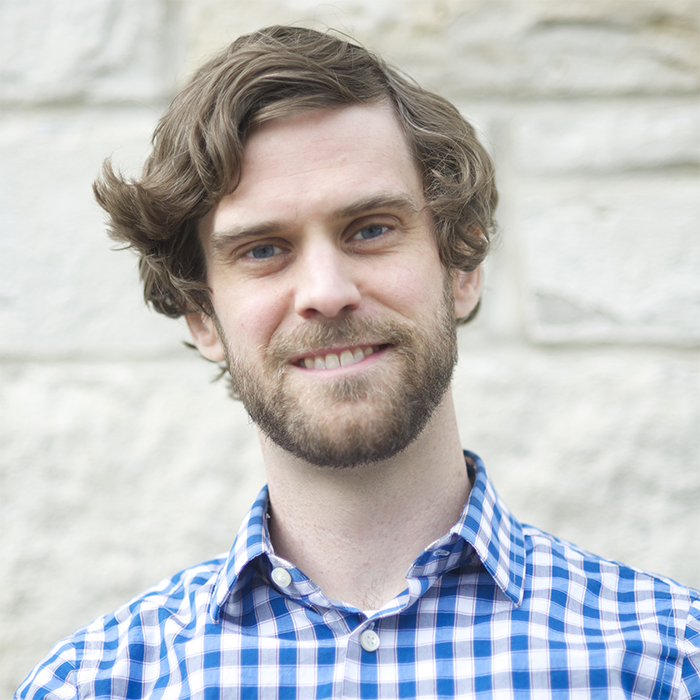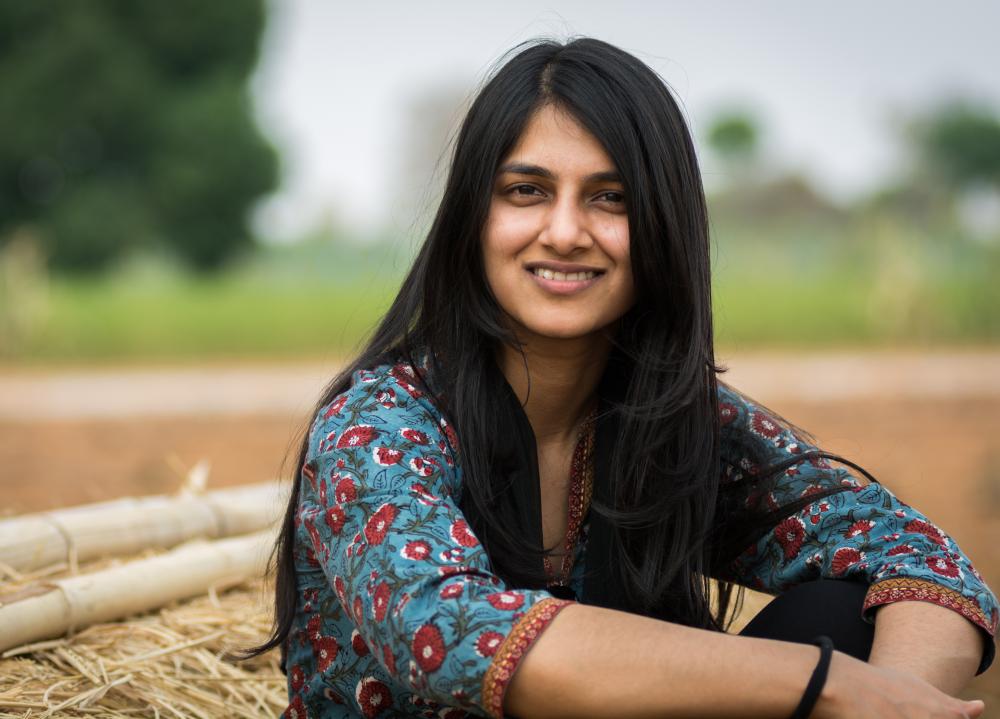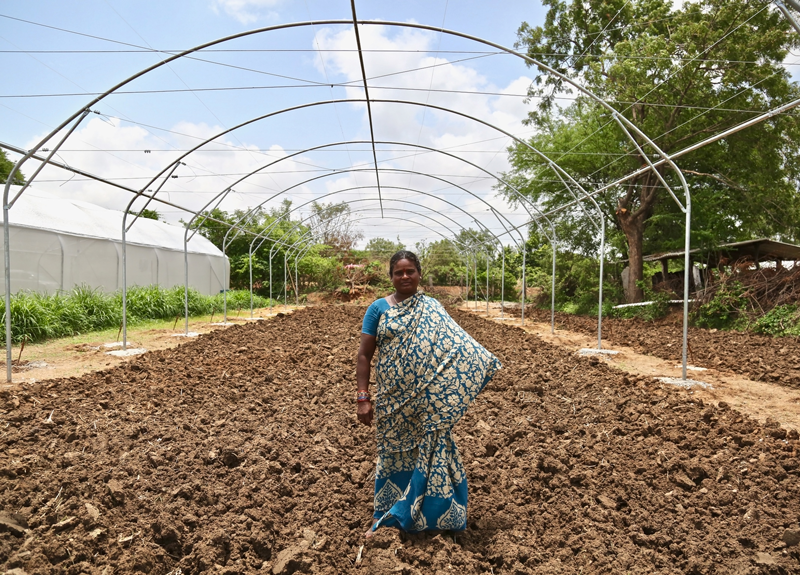Over the past year, business has been booming at Kheyti, a sustainable farming enterprise that spun out of Northwestern’s Kellogg School of Management. From recent financing and strategic partnerships to customer acquisition, the social impact organization has been breaking new ground.
“Kellogg gave me a great network to launch Kheyti on a global platform,” says Kheyti co-founder Saumya, a 2017 graduate of Kellogg who doesn’t use a surname. “By being a part of the Youn Impact Scholars Community and Zell Fellowship program at Northwestern, our team got introduced to many key stakeholders in the social impact space. ISEN was also an important early supporter of Kheyti.”
The Institute for Sustainability and Energy at Northwestern (ISEN) awarded Kheyti $25,000 in seed funding in 2016 as part of its Resnick Family Social Impact Program, an initiative that provides financial support at various levels for student projects addressing challenges in sustainability and energy.
Based in India, Kheyti’s mission is to deliver a low-cost, modular, and technologically-equipped greenhouse to smallholder farmers who are struggling to produce in the face of extreme weather impacts due to climate change. Its “Greenhouse-in-a-box” limits the unpredictability of farming—from spells of drought, rain, and wind to the migration of new insects that diminish crop yields. It uses 90 percent less water, grows seven times more food, and provides farmers with dependable income.
New Financing Partnership
Large, commercial greenhouses in India are nothing new. But at $30,000 or more for a commercial greenhouse spanning half an acre, such an investment makes little sense for low-income farmers working on smaller plots. Even Kheyti’s greenhouses, which are much smaller and more affordable by an order of magnitude, can remain cost prohibitive at times. That’s why the company recently partnered with India’s second largest national bank, Bank of Baroda, to secure special financing options for its farmers.
“Bank of Baroda agreed to give our farmers loans at 8.65 percent, which is about one-third of the interest rates we were getting from our previous partner,” Saumya says. “This gives our farmers access to flexible, mainstream financing without any collateral at the most competitive interest rates.”
New Product Partnership
Capital and cost sit at the heart of affordability. Working with banks to ensure farmers have available capital is an important piece of the puzzle. But what about cost? In an effort to keep prices down, late last year Kheyti found a partner some 3,000 miles away.
“We made an agreement with Top Greenhouses, an Israeli greenhouse manufacturer, to co-design and deliver our greenhouse kits 30 percent cheaper,” says Saumya.
It turned out that Top Greenhouses had a joint venture with the greenhouse division of Mahindra, one of the biggest conglomerates in India.
“The partnership allows us to get Israeli design expertise at Indian prices,” she says.
Growth in Customer Acquisition
With an increase in available capital and falling costs of production, it may be no surprise that Kheyti’s greenhouses are becoming increasingly attractive to farmers and farming consortiums. The company recently added 100 farmers in its current area of operations in India—nearly tripling the number in its network.
“The uptick is due in large part to word of mouth. Farmers tell others about the increase in income they’ve had through this small asset on their farm, and the idea spreads,” Saumya says.
Kheyti is also in the midst of negotiating an agreement with the Society for Elimination of Rural Poverty (SERP), a joint venture between the World Bank and the Government of the Indian province of Andhra Pradesh that aims to improve the livelihoods of rural poor in the region. If the agreement goes through, SERP—which works with more than 600,000 farmers in the area—would launch Kheyti’s program with 1,000 of its farmers who are mostly women.
“SERP would take care of identifying farmers, giving loans to farmers, and paying the overhead for customer acquisition, training, and extension,” says Saumya. “We really hope to get this project started as it would help us develop our model in another state with different types of farmers.”
Photo credit: Venugopal Goundla







